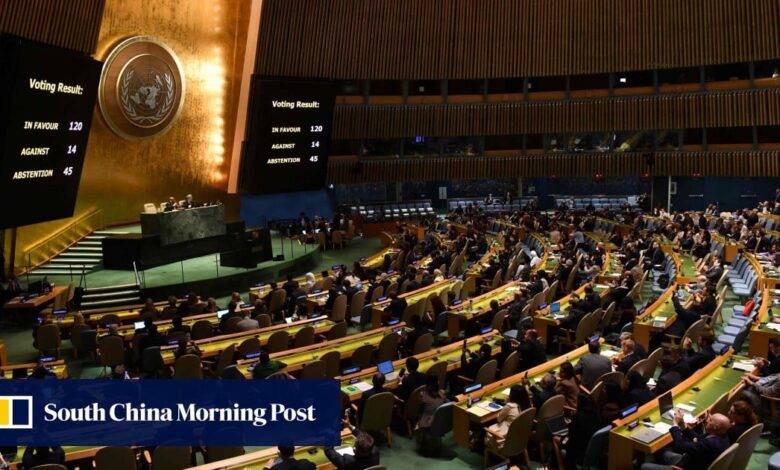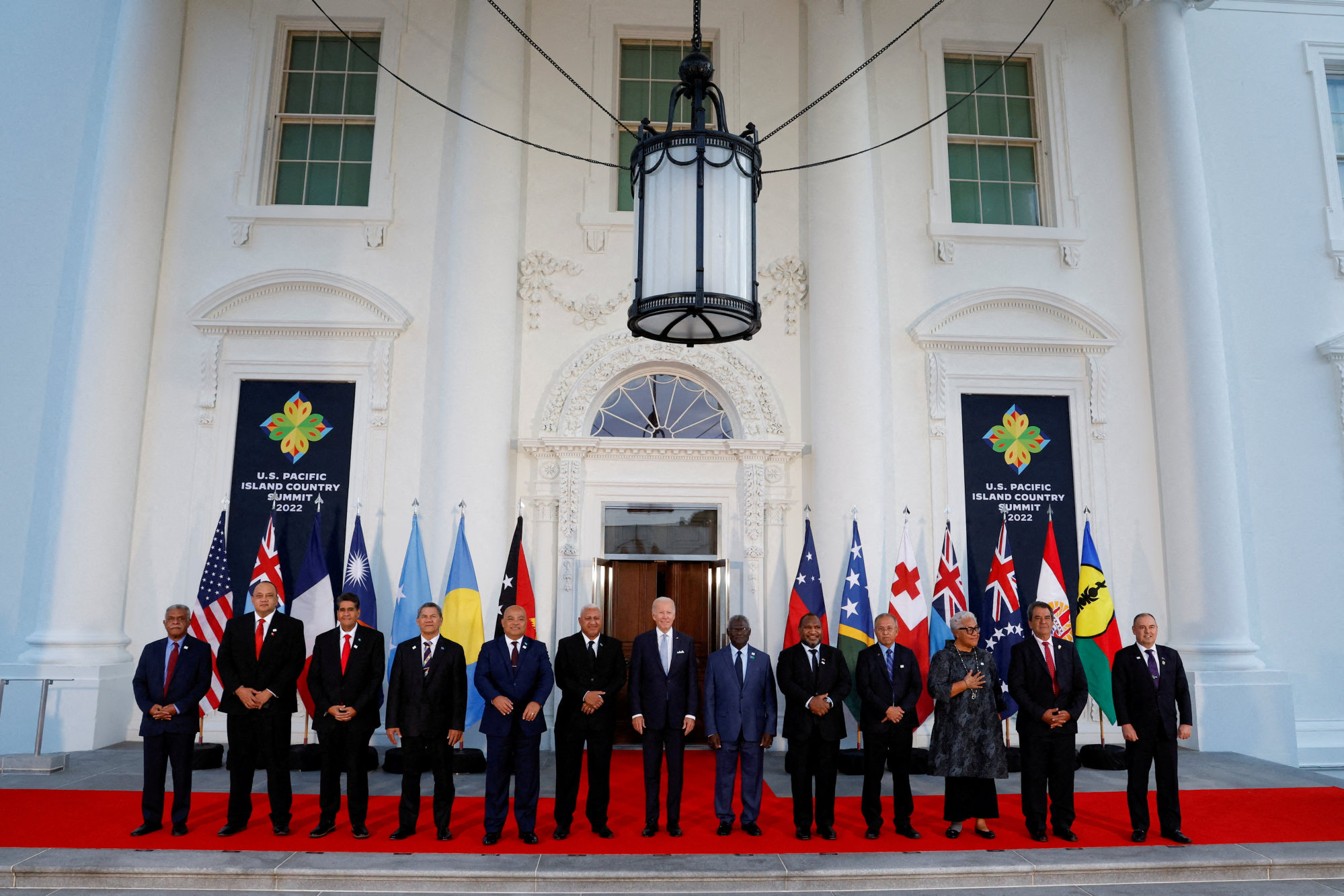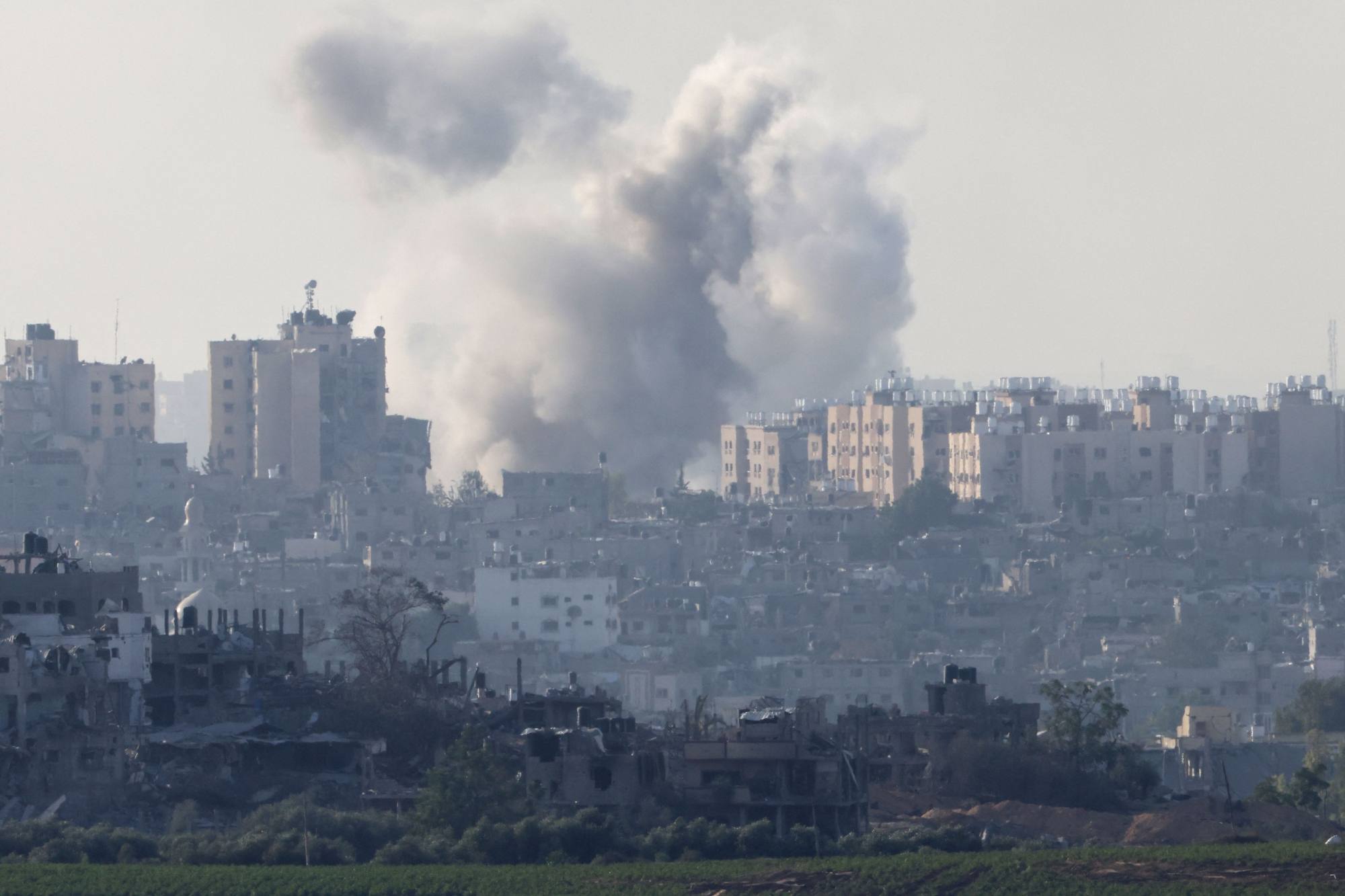Israel-Gaza war: why did Pacific nations side with US on UN ceasefire vote while some allies sought ‘daylight’?


Micronesia, the Marshall Islands and Palau, in particular, have a history of aligning with the US at the UN, and some have suggested that this is due to their “Compacts of Free Association” with Washington, but more importantly, because also of the American aid they receive. The US has committed a total of US$7.1 billion to the three nations over the next 20 years, Reuters reported in May. Palau abstained from the October 27 vote.
To Israel and the West, Hamas are terrorists. But for Malaysia?
To Israel and the West, Hamas are terrorists. But for Malaysia?
There is, he said, an “increasing amount of daylight between Washington and its Asia-Pacific partners over how best to stop this conflict”.
In the weeks since, more than 8,300 people have been killed in Gaza – including over 3,400 children – and tens of thousands have been injured, according to the latest UN figures and data from Gaza’s health ministry.
The escalating death toll and destruction has heightened international support for a humanitarian truce to get desperately needed food, water, medicine and fuel to the more than 2 million people still in Gaza – with Friday’s nonbinding resolution serving as an unmistakable barometer of global opinion.
The American government’s stance on a ceasefire has hurt US credibility and moral standing
Lanteigne said the divisions reflect concerns about whether “American foreign policy reflects the current global security situation”, even with Washington’s frequent calls for a “rules-based international order” to be upheld.
“The American government’s stance on a ceasefire has hurt US credibility and moral standing, not only in the Asia-Pacific but also in Europe and other parts of the world,” he said, further noting the growing calls for clarity on how Washington is seeking an end to the fighting between Israel and Hamas, given concerns that the conflict will escalate and spread to other parts of the Middle East.

US National Security Adviser Jake Sullivan said on Sunday that it was “ultimately” up to Israel how the war would play out, in spite of the fact that the Israeli government has intensified its operations in Gaza without a clear military objective – apart from the eradication of Hamas.
Ian Hall, an international-relations professor at Australia’s Griffith University, said many Asian states had long been reluctant to vote in favour of UN resolutions directly criticising human-rights issues, out of concern that they might come in for similar criticism in future.
“Values-based foreign policies often appeal to electorates in democratic states, but they are hard to implement,” Hall said, adding that international relations inevitably involve some trade-offs between values and interests, especially national-security interests.
Chong Ja Ian, a political scientist at the National University of Singapore, said he would not read too much into the votes of the US’ regional partners on the Israel-Gaza war resolution as it had long been an issue on which states adopted different positions, in part due to domestic political considerations.
“Given the unique relationship between the US and Israel, [Washington’s] position has been relatively distinct for some time,” Chong said, adding that if there was a challenge to US value-based diplomacy, it was when it appeared to “find excuses for Israel’s excesses”.
‘Toxic’ narratives over Israel-Gaza war open deep divisions in the West
‘Toxic’ narratives over Israel-Gaza war open deep divisions in the West
Washington has called for restraint and proportionality in Israel’s retaliatory actions while pressing for humanitarian aid to flow into Gaza and backing a two-state solution – one in which Israel would coexist with an independent Palestinian state – even as it supports Israel’s right to self-defence.
“This is a difficult position to hold to be sure, but it remains to be seen if US policy toward the [Israel-Gaza] conflict spills over into other areas,” Chong said.
Efforts towards finding a two-state solution have been on the back burner for almost a decade, ever since the last US-led effort at peace talks collapsed in 2014 amid disagreements on Israeli settlements, the release of Palestinian prisoners and other issues.


 Offers free spin
Offers free spin